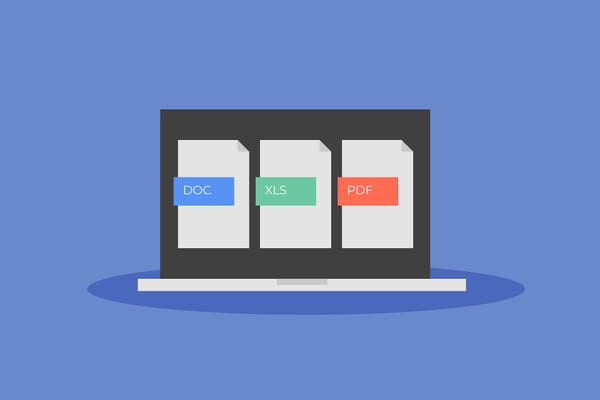How Remote Employees Can Cause a Data Breach of Your Small Business Data (And How to Prevent It)

You may have received a data breach notification from an online service or social media platform you've used. Perhaps you have taken steps to protect yourself, such as changing passwords, enabling two-factor authentication, or monitoring your identity for fraud.
However, as a small business owner, the stakes are even higher. You are now responsible not only for your own data, but also for the data of your customers, employees, and business partners. This brings a new layer of responsibility: protecting your small business from data breaches.
Data breaches can occur for many reasons—weak passwords, phishing attacks, outdated software, insecure networks, or third-party vulnerabilities.
However, one increasingly significant risk to consider in today's remote or hybrid work environment is insider threats. These are instances where employees unintentionally leak sensitive business data, often due to poor security habits when working from home, in a café, or while traveling.
The consequences of a data breach and the subsequent leakage of sensitive information can severely impact your business. It can damage your reputation, result in legal fines, and necessitate expensive data recovery efforts, all of which can disrupt your business operations.
Related:10 Cybersecurity Tips to Protect Your Small Business Data
How Employees Unintentionally Leak Company Data
While working remotely flexibility is great for you and your employees, it also increases the risk of data leaks.
Here are some common ways employees and collaborators can unintentionally expose sensitive business information.
· They connect to unsecured networks. One of the most common risks remote employees face is working over unsecured Wi-Fi networks in cafés, airports, or hotels. A man-in-the-middle attack is a type of cyberattack where hackers intercept data sent over an unsecured network, allowing them to steal sensitive information like login credentials or financial data.
Example: Imagine your employee is working from a café on a public Wi-Fi network. They access your company's cloud storage and download files. Meanwhile, a hacker on the same network intercepts the data. Without the right security measures, your business data could be exposed in minutes.
· They use personal devices to access work folders or systems.
Many employees working remotely use their personal devices to access work folders or systems. Unfortunately, these devices may lack essential security protections such as antivirus software, encryption, or secure configurations, and you may not even be aware of it.
· They fall for scams and phishing attacks: Remote workers working from home may be targeted by phishing scams, leading them to unknowingly click on malicious links or share confidential information with cyber criminals. Distractions at home can make them even less vigilant.
Related: Top 10 Scams Targeting Very Small Businesses: How to Stay Safe and What to Do If You're Scammed
· They share passwords and sensitive content without knowing they shouldn't.
It's common for remote workers to collaborate using online tools, but without proper guidance, employees may unintentionally share sensitive files or passwords with the wrong persons. This could happen through miscommunication, unfamiliarity with secure file-sharing practices, or accidental sharing in public forums.
· They lose devices containing sensitive information. Laptops, smartphones, or storage devices containing sensitive business data can be lost or stolen. Without encryption, any data on these devices is vulnerable to unauthorized access.
How to Support Safe Remote Working in Your Small Business
- Provide a VPN for secure Wi-Fi connections
A Virtual Private Network (VPN) secures your employees' internet connections when they work remotely. A VPN encrypts the data traveling between your employees' devices and the internet, ensuring that even if they connect to a public network, their connection remains secure. With Bitdefender VPN, for example, your employees can safely connect to any Wi-Fi network without worrying about hackers intercepting their data as the VPN acts as a secure tunnel, hiding their IP address and encrypting all data exchanged with the network.
2. Use AI to identify scam attempts
With Scam Copilot, Bitdefender's AI-powered scam detector, you can give your team a tool to quickly analyze suspicious emails, texts, or social media messages. They can send any tricky texts, screenshots, links, or even QR codes they've received and are suspicious of in order to get an instant analysis of their safety and legitimacy.
Scam Copilot also continuously monitors incoming messages and alerts employees if a potential scam is detected, helping to prevent phishing attacks before they happen.
3. Monitor the digital identity of your small business
You can't always prevent your data from being leaked in the event of a breach at a company or software that has previously collected your personal information or login data. However, you can make sure to stay on top of exactly how much of your private data has leaked. Bitdefender Digital Identity Protection monitors over 100 personally identifiable pieces of information such as SSN, credit cards, or home address. It figures out what data surrounding your online identity has been compromised or exposed and lets you know about it. With this information, you can change passwords, update your PINs to deter future identity theft, and execute a "what to do in case of a breach" plan.
4. Activate Anti-Theft on their devices
Bitdefender Anti-Theft allows you to locate, lock, or even wipe all the data from a lost device. You can view your device's location on Google Maps and if needed, you can lock itand set a PIN for unlocking it, or remotely wipe all data from the device. Additionally, for devices with a front camera, Bitdefender can take photos of anyone trying to access your device, which you can view in the Anti-Theft dashboard.
5. Use a Password Manager
One of the simplest ways to protect your business data is by using a password manager. Employees often reuse or share passwords across multiple accounts, which increases the risk of unauthorized access. A password manager creates and stores strong, unique passwords for each account, reducing the chances of a breach caused by weak or compromised passwords.
6. Make your employees' lives easier and your company safer
Employees are often the first line of defense against cyberattacks, so it's essential to train them on best practices. You may not have the time to answer all their questions all the time; that's why you may find useful Scam Copilot functionality that does this for you. Scam Copilot is also a security chatbot you and your employees can consult when in doubt about a potential threat.
Bitdefender Digital Identity Protection, Bitdefender Premium VPN, Password Manager and Scam Copilot are included in Bitdefender Ultimate Small Business Security, along with other solutions, making it the most comprehensive cybersecurity suite for companies with up to 25 employees.
Check out plans, here.
FAQs
1. How can remote employees unintentionally cause a data breach in a small business?
Remote employees can unintentionally cause a data breach by connecting to unsecured public Wi-Fi, using personal devices that lack adequate security measures, or falling for phishing scams. They may also share sensitive information or passwords without realizing the risks, or work from home on insecure networks that are vulnerable to hacking.
2. What is the best way to protect my small business from data leaks caused by remote workers?
To protect your business, you should provide remote employees with tools like a Virtual Private Network (VPN) for secure connections, activate anti-theft features on their devices, and train them on cybersecurity best practices. Bitdefender Ultimate Small Business Protection offers comprehensive solutions such as VPN, scam detection, and digital identity monitoring to help prevent data leaks.
3. What should I do if my small business experiences a data breach?
If your small business suffers a data breach, act quickly to stop further data exposure. Notify affected customers and partners, consult legal and cybersecurity experts, and strengthen your security measures to prevent future incidents. Using tools like Bitdefender's Digital Identity Protection can help you monitor compromised data and take appropriate action.
tags
Author
Cristina is a freelance writer and a mother of two living in Denmark. Her 15 years experience in communication includes developing content for tv, online, mobile apps, and a chatbot.
View all postsRight now Top posts
How to Protect Your WhatsApp from Hackers and Scammers – 8 Key Settings and Best Practices
April 03, 2025
Outpacing Cyberthreats: Bitdefender Together with Scuderia Ferrari HP in 2025
March 12, 2025
Streamjacking Scams On YouTube Leverage CS2 Pro Player Championships to Defraud Gamers
February 20, 2025
How to Identify and Protect Yourself from Gaming Laptop Scams
February 11, 2025
FOLLOW US ON SOCIAL MEDIA
You might also like
Bookmarks







